KABUL, Afghanistan -- Add in the ingredients of father, gardener, carpenter, house cleaner, and dynamic leader, and what do you have' In this case, you have the commander of the elite police unit known as the Central Unit located in the southern area of Kabul.
Brig. Gen. Ahmed Fahim Qayem, commander of the Central Unit, Police Zone 101, is setting an example that few in Afghanistan have seen the likes of. The general truly cares what everything looks like, the perception it conveys, and most importantly, the unit personnel he leads.
For Qayem, this is an opportunity to lead his way, an opportunity to make a big difference in the lives of those Afghan men who volunteer to serve to bring order to their nation amidst a war-ravaged environment.
"Since I was eight years old, my intent was to be a good soldier and officer," Qayem said through an interpreter. "To be honest, professional, and do what I was told."
This comes from a leader who has served as a soldier, an artillery officer. He was also a cavalry officer and fought as a commando as well.
He fought with the Mujahideen, the guerrilla fighters who battled the Soviet army from 1979 - 1989, when the Soviets withdrew in defeat. The Soviets invaded in December of 1979 in order to support a recently installed pro-Soviet prime minister.
Decades later, he now leads and mentors a unit of policemen who share his drive and sense of professionalism.
But before an Afghan man thinks about joining this elite quick reactionary force of 325 to break-up riots raging out of control in Kabul for example, Qayem has a few prerequisites that you must live by when serving in this unit.
You can't drink alcohol, use smokeless tobacco, nor smoke while serving, otherwise you'll be fired, he said.
"Instead of this, I will motivate them to eat and drink healthy foods," Qayem said. Of course, when on leave to visit one's family, your business is your own," he said.
This is the template of the type of person Qayem wants to lead. He wants his men to be disciplined above and beyond the call of duty, and who take pride in themselves.
For many of his police personnel who come from the mountains and small villages across Afghanistan, this is a rare opportunity for someone looking to change his life.
This unit serves as a shining example of an end-state goal of the NATO Training Mission-Afghanistan/ Combined Security Transition Command-Afghanistan. It embodies the concept of turning over and giving the Afghans complete control of their destiny. This unit is an excellent example of what things could be, given proper training and mentoring.
It represents a successful hand off by coalition forces in its ultimate goal of Afghan self-reliance and a professionally led Afghan National Police that are accountable to its people. It also is a perfect example of the transitional concept of stewardship -- taking complete ownership and control of the resources provided to them. This means complete accountability and conducting maintenance on equipment.
This is evident the moment one steps into the compound. Immediately one notices how all the unit vehicles are parked dress-right-dress in near perfect order with the wheels all pointed straight ahead. Unlike a parking lot in western nations, there's no need for parking stripes here.
There is no trash blowing around or collecting against a wall. To the right side of the headquarters building is a front yard where a couple of crane-like birds walk around on grass that will turn green this spring. Adjacent to this is a greenhouse structure made of plastic sheets, with roses among other flowers thriving. Qayem said they'll be planted to beautify the compound in the months ahead.
Inside the unit building, which was renovated by the Turkish Army in 2002, everything is spotless. On the first floor there is the one-room clinic, with supplies purchased by leadership, to handle first-aid situations.
Down the hallway to the right is a gym, with multi-colored floor foam mats designed to cushion the floor. The room is plastered with posters of Kung Fu competitor champion, Bruce Lee. And, music is played to enhance motivation.
Across from this room is one of the sleeping areas augmented by headgear racks on the walls built by Qayem. Little pictures are mounted on the sides of the bunk beds identifying who sleeps on top and bottom. Their slippers are neatly positioned at the foot-end of the bunks.
And, just like at basic training institutions, beds whose covers and sheets are tightly tucked in a similar manner, good enough to bounce a quarter on. The upstairs is also sleeping quarters for unit personnel.
"Being a human being, civilian or military, where you live should be nice and clean. It will make you do good things," Qayem said.
A walk outside to the kitchen shows a dining room as quaint as any restaurant can offer hoping for return customers. Behind the dining room is the kitchen, simple by some standards, with its huge kettles for cooking, but once again, clean.
But before the food is eaten en mass, Qayem said he personally samples the food to make sure it is a quality product, every time.
There is also a little shopping exchange with snacks and soft drinks and some hygiene products. And, a barbershop to help this police force take pride in every aspect of their appearance.
To those Afghan men looking for something completely different, Qaymen says consider this unit.
From watching the platoons drill, it become quickly apparent how trained and disciplined this unit is. They march with legs kicking high in the air in sync with one another. They're attentive and responsive, and look to the platoon leaders, and especially Qayem, in a way that shows everyone is trying to do their best. Not just to please, but to be a professional.
Even Qayem can't contain his pride as he claps in joy as his unit marches by him during a demonstration drill.
As a commander, Qayem said his concerns are having an educated police force, the right equipment, and making sure his men are well-trained. Much like, he said, any western police force.
To this end, Qayem said there are other rules and practices he holds himself and his men to. Some of them are:
- never take a bribe from anybody
- train differently than the Afghan National Police since unit personnel live on the premises
- take care of your men, citing the clinic as an example
- love your men as you do your own children to build strong relationships
- engage in good hygiene practices through haircuts, washing and showering
"If you sweat in training, you will bleed less in the fight," he said.
Part of this training, not surprisingly, involves literacy training taught by three teachers from the Ministry of Interior, Qayem said. Currently, only 14 percent of the recruits for the Afghan National Security Forces - Army and Police - are literate.
Having a balanced force is important. To that end, Qayem said he has up to 50 members on leave at their home at any given time.
Even though his unit's Absent Without Leave rate is lower than most Afghan National Army or Afghan National Police units, occasionally men do not return from leave for various personal reasons. When possible, Qayem has unit members visit those who have gone AWOL. When feasible, his men persuade their comrades to return.
The biggest reason why someone goes AWOL, Qayem said, is because they leave for another country for a higher paying job. Other reasons include personal reasons like family issues.
In the last six months, there were eight unit members who went AWOL, he said.
"I understand those kids have problems," Qayem said. In Afghanistan, "there are hundreds of reasons" like the economy, no water, no paved roads, etc., for going AWOL.
But even the unit's current roster of 325 is not ideal to carry out the mission.
Kabul City Police Command plans call for 600 personnel to be assigned to the unit by this June, said a spokeswoman for the Regional Support Command's Capital Region.
Qayem said with the ongoing support of the coalition forces through mentoring and construction, and the deputy minister of Security, Ministry of Interior, that he has a good feeling the increase will happen as scheduled.
"I'm waiting, but my eyes are getting tired of looking at the gate to see them," he said with a laugh.
Even though the facility is well kept, and his men are well disciplined, Qayem said there are issues he'd like to see improved.
He explained that there are not enough showers and there is the need for improved laundry facilities. His goal, is to make things look like they are in their neighboring countries, he added.
It's apparent that Qayem asks a lot from his unit. But it also is very apparent that he gives a lot too.
"This country has to do good," he said. "Friends on the coalition forces support me. I have good support from my higher officers."
Coalition support comes partly in the way of U.S. Army's 1st Lt. Dennis Frey and Staff Sgt. Chris Marcello. They serve as police mentors to neighboring Police District 7, and assist Qayem and his unit.
They are part of a 13-person Police Mentor Team from the 1st Squadron-134th Cavalry Regiment, Nebraska National Guard, Task Force-Kabul, that goes around to Afghan police units to mentor in ways such as ensuring the Afghans know how to request supplies, conduct follow-on training, meet personnel needs -- basically conducting checks and balances to keep the unit running smoothly, Frey and Marcello explained. They usually come out about once or twice a week, unannounced, they said.
"We randomly show up," Frey said. "We inspect, look at checkpoints, and district facility upgrades," he said referring to all Afghan police units.
Qayem's unit, Frey said, is getting ready to use computers to electronically document unit data.
"They respect the knowledge we bring to the table," he said.
What does the future hold, Qayem can't say. But he does know how to get there.
"Your police are for the service of the people. Come join to help and make this country stand on its own feet," he said to his countrymen.
"Back in the day," Qayem reflected, doctors, engineers and other like professionals would join the military and passed their advanced knowledge to the soldiers they served with, which paid dividends. In fact, he said, it used to be mandatory that a minister's son would serve in the military.
Serving was mandatory as the government used to send 18-year-old men a letter informing them of their service, which back then, meant a soldier received a prized benefit like a passport.
"All the good-looking girls would marry a soldier," he said. "Now they're not interested in the uniform. It was not like it is now."
That being said, things are definitely looking up for the Afghan National Police and the Afghan Security Force in general.
A new recruit starts at 8,250 Afghanis or $165 a month. Pay, of course, goes up with rank and time service. And, those in this unit receive a hazardous duty incentive, which brings in another $45 a month.
In comparison, Aziz Shams, a spokesman for the Afghan Ministry of Finance, said in an article published last year, said the average Afghan income was $426 a year or $8.19 a week.
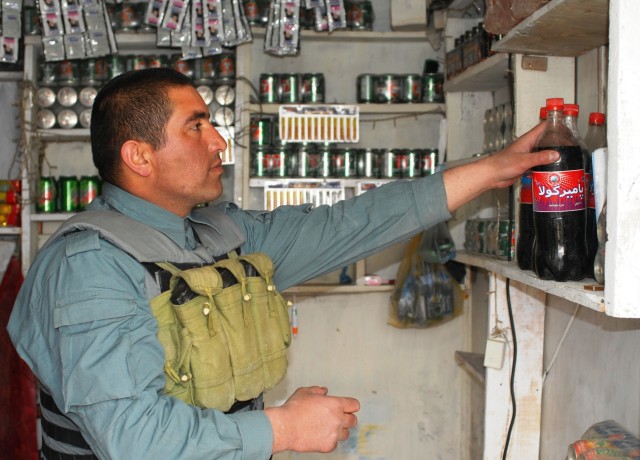
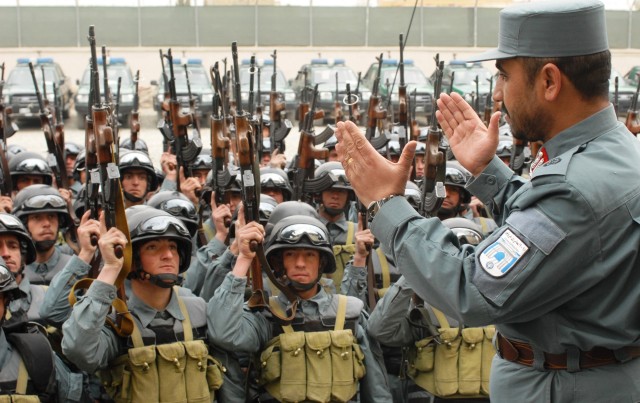
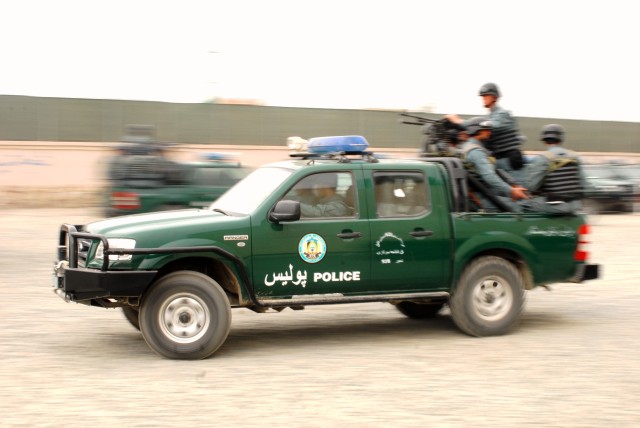
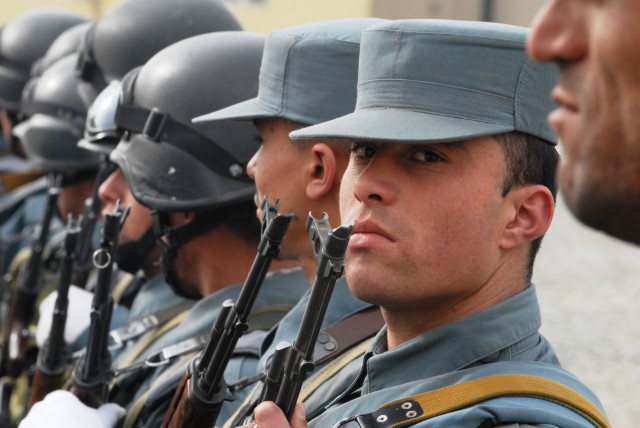
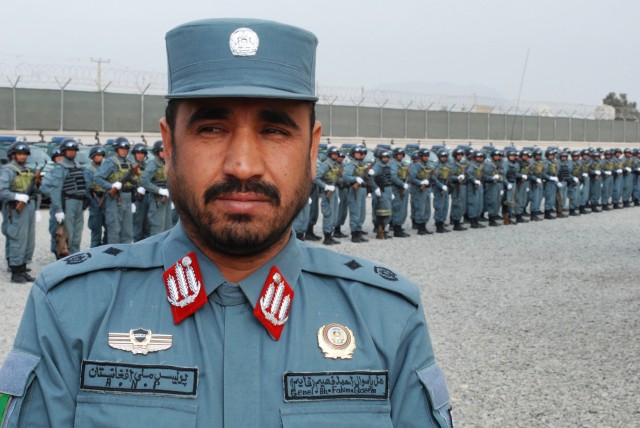
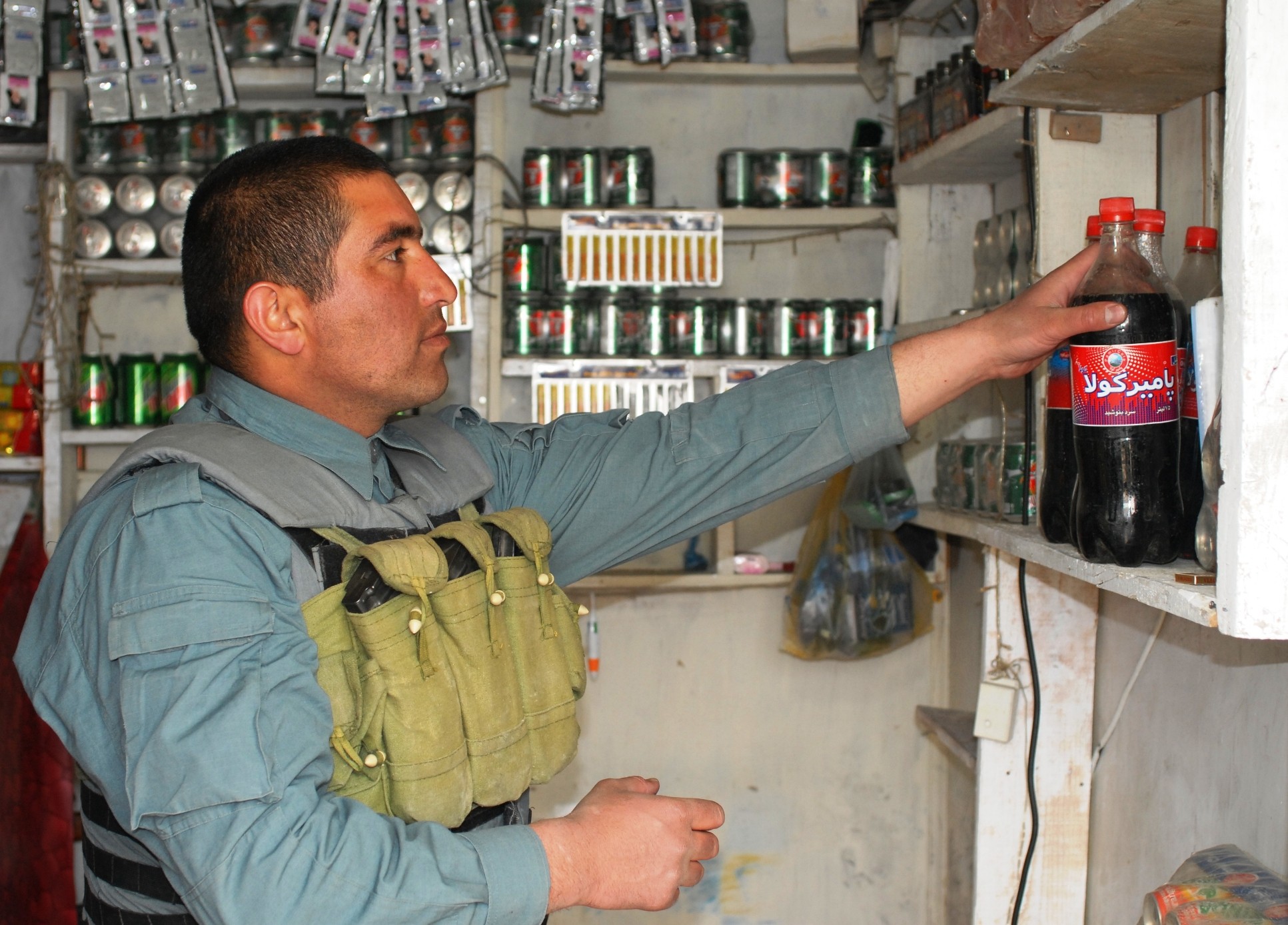
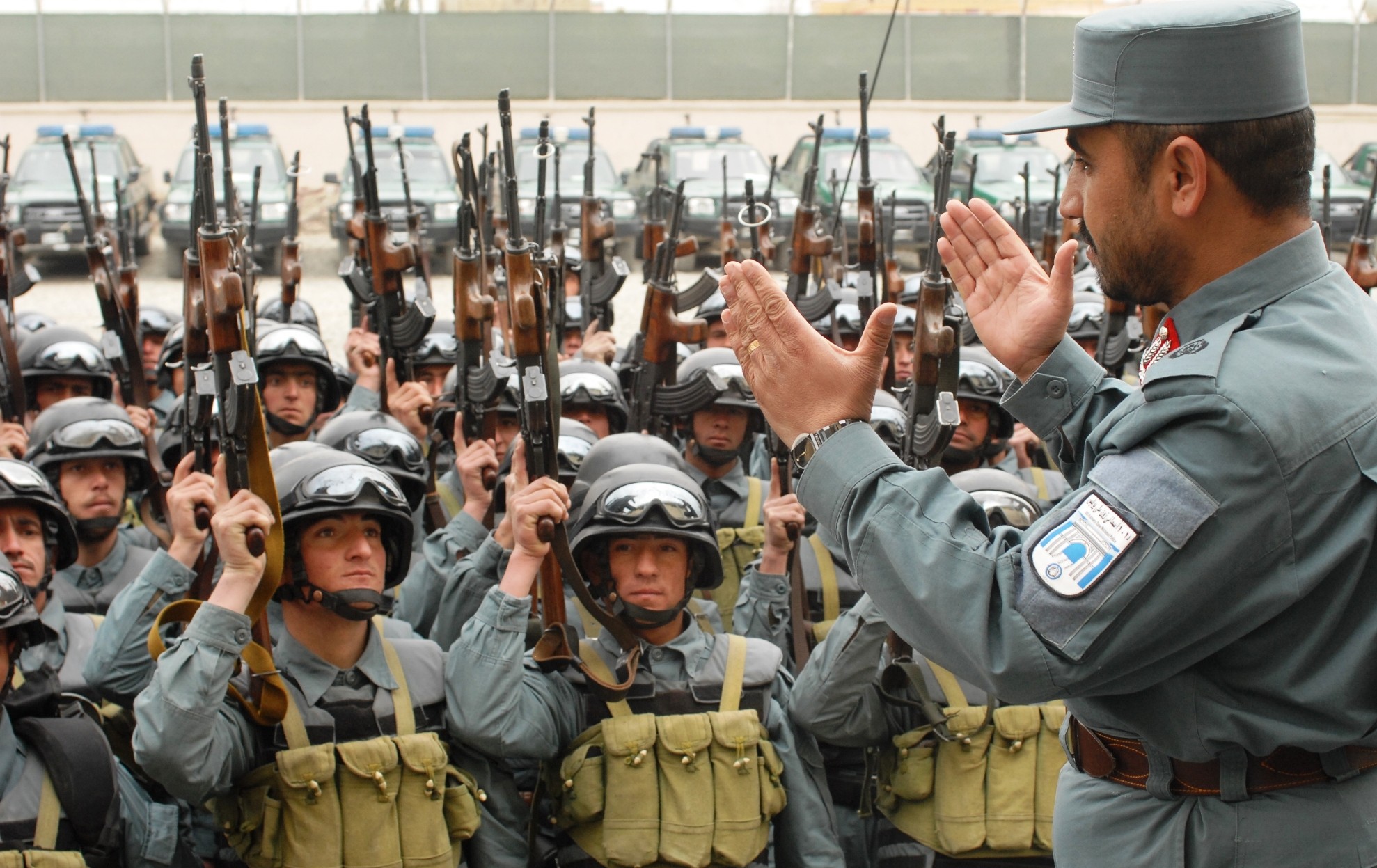
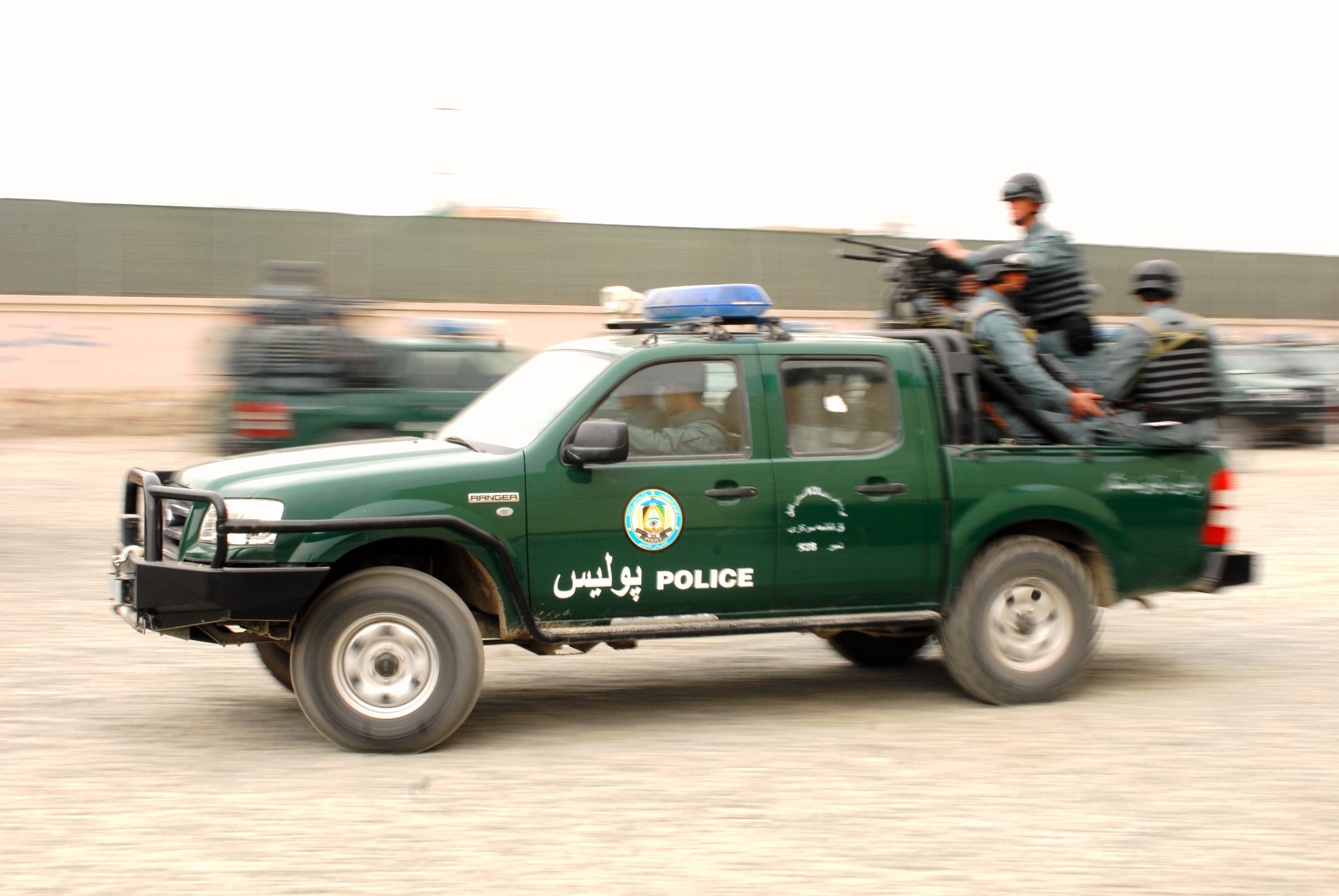
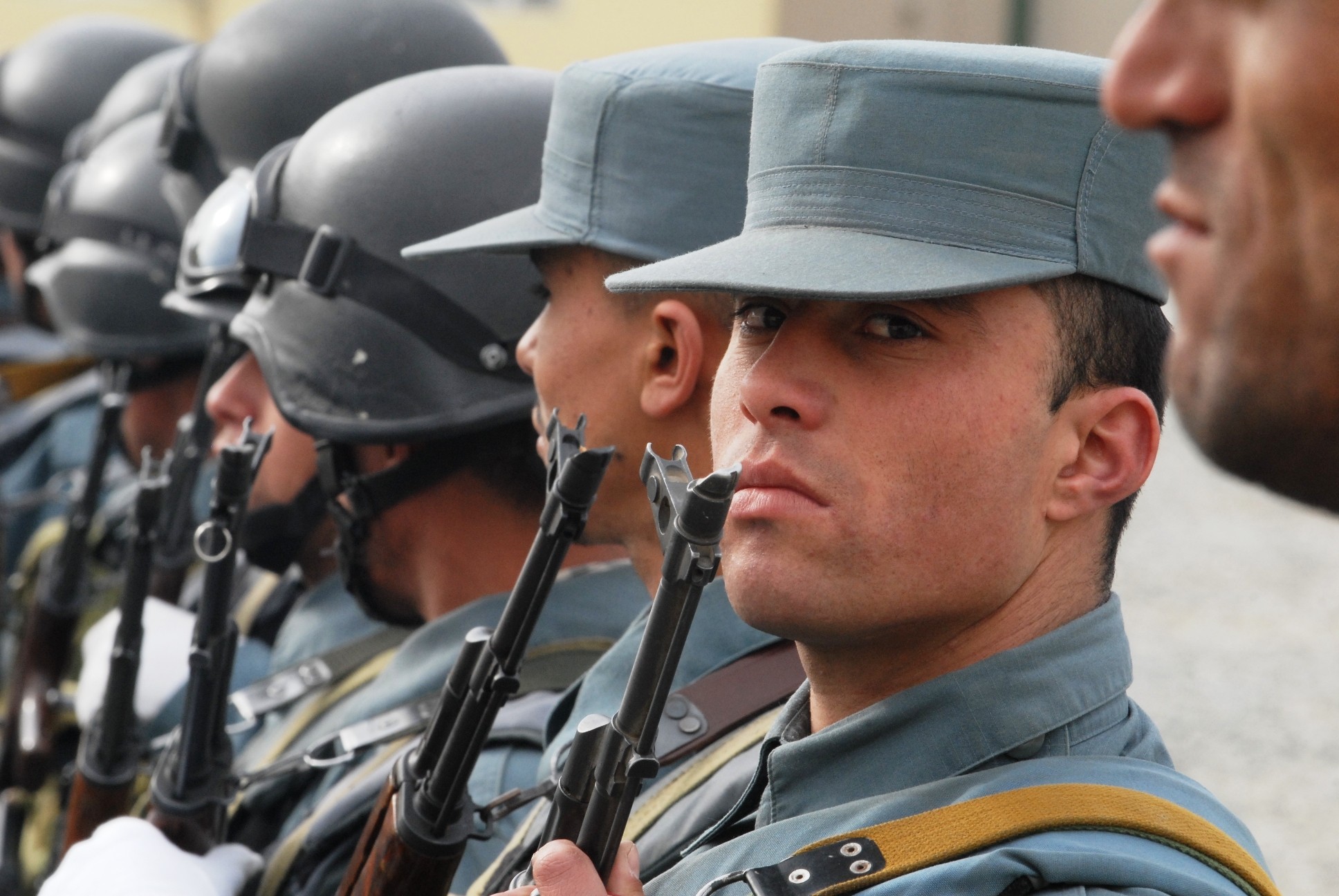
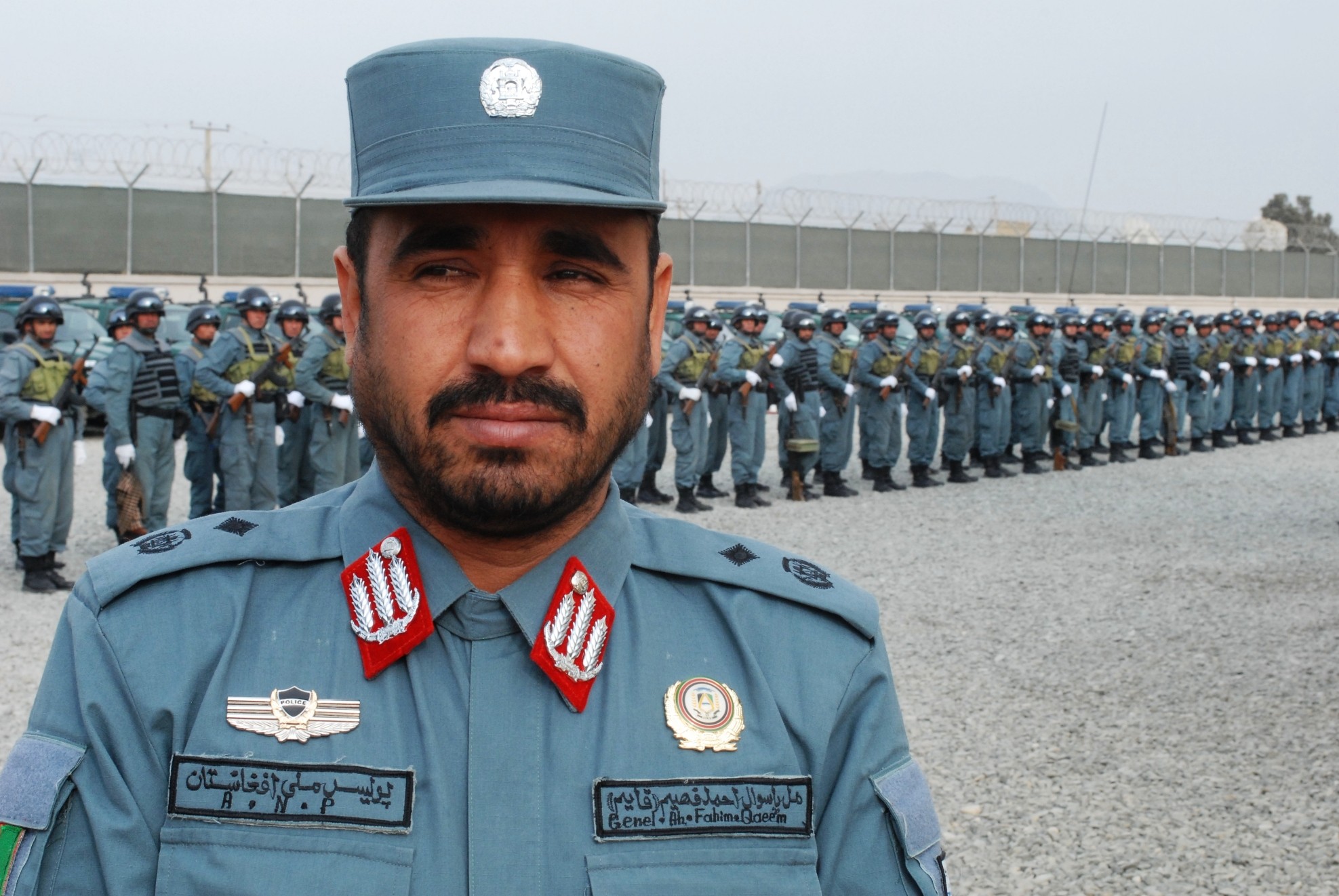
Social Sharing